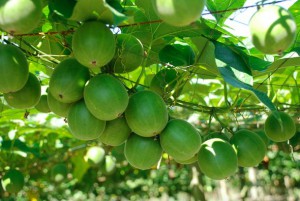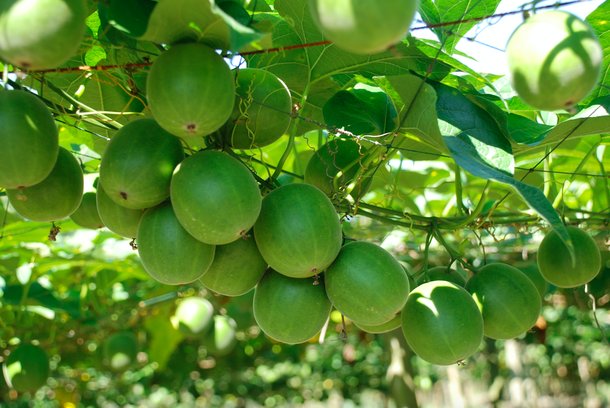
A Kiwi-Chinese joint venture which has developed a low-calorie sugar alternative made entirely from fruit will now see its ingredient added into an innovative new beverage. Monk fruit juice is a natural juice made from a small Chinese melon (also known as monk fruit). A natural low-calorie alternative to sugar and artificial sweeteners, monk fruit juice offers a new way to combat the growing obesity epidemic by reducing sugar and calories in everyday foods and beverages, say the producers.
FMCG manufacturer Hansells Food Group is using the monk fruit juice in a newly-launched shelf-stable beverage to meet the growing local demand for low sugar drinks. The new fruit drink, Vitafresh Made for Kids, a 98% sugar-free beverage with no artificial flavours or sweeteners, will use monk fruit juice supplied by Guilin GFS Monk Fruit Corporation to dramatically reduce sugar and calories. The melon is grown and produced in China, however the R&D of the food ingredient is based in the Waikato.
Hansells Marketing Manager Jane Bennett says monk fruit juice has many advantages over existing low-calorie sweeteners and was ideal to support their first move into the competitive category. “Unlike other sugar alternatives, monk fruit juice is completely natural and has a neutral taste profile which makes it easier to blend,” she says.
“Earlier this year we began developing a fruit drink under the Vitafresh brand that parents could give to their children without feeling guilty. With this in mind we were looking at a low sugar (2.5% or less) option with no artificial flavours and more importantly no artificial sweeteners.
“The use of monk fruit juice along with Stevia has allowed us to create a product that has ticked all the boxes; 98% sugar free, no no-no’s and great tasting, and so far the reception from trade and consumers has been very positive,” she says.
Bennett estimates that for every million litres of traditional fruit drink sold, Kiwi families are consuming up to 10,000kg of sugar.
The fruit drink category is worth $54 million in the New Zealand market, but Kiwis are becoming more aware of the impact of sugar and are now looking for alternatives, she says.
“Kiwi consumers are not only looking for reduced sugar options, they are becoming more discerning when it comes to understanding what these substitutes are made from, and are seeking out reduced sugar products that also taste good,” she says.
Monk fruit juice can be used to reduce the sugar content in many other foods like yoghurt, chocolates and breakfast cereal products.



